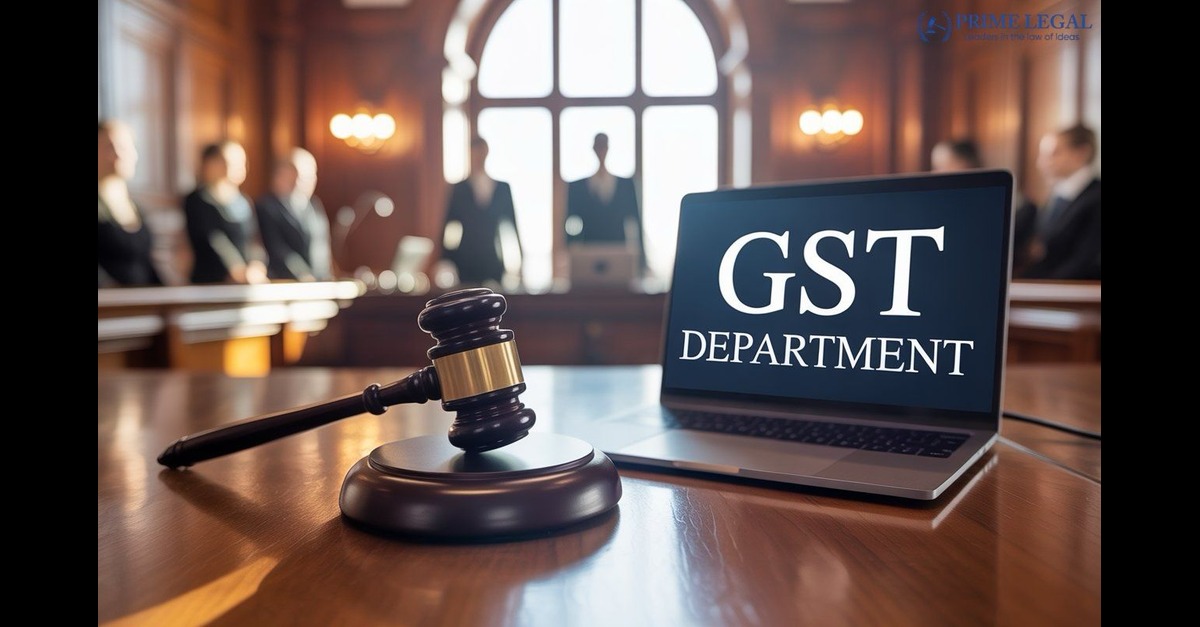Introduction
Recently the Delhi High Court A Bench of Justices Prathiba M. Singh and Shail Jain passed the order which sets clear boundaries on the power of the Goods and Services Tax department to search an digital devices and computer systems of the assesses this ruling clarifying the extent of state authority in the digital era and reinforcing the principle of due process and right to privacy for taxpayers. Court legal pronouncement ensures that the investigating power of Tax authorities should be exercised in respectful manner and with respect of fundamental rights of citizens and businesses. This is a pivotal development in the evolving the Tax law.
Background
The GST Act, introduced in 2017, this Act granted extensive power to tax authorities to conduct searches, seizures, and inspection to curb tax evasion.
Advocate Puneet Batra challenged the actions done by Anti Evasion branch of Central GST department that the authorities conducted the search seize his office, Documents, CPU(Computer processing Unit) and accessed the data.
Section 67 of the Central Goods and Services Tax Act, 2017 gives power to officers to inspect businesses premises, books of accounts, and other document’s which are necessary to inspect, this power is extended to the digital devices which often contain financial data of the taxpayer which includes computer systems, laptops, and mobile devices.
This section of GST remained ambiguous on the specific scope and producer which includes these digital assets. Taxpayer frequently raised concerns about that the government officials are demanding the passwords of their digital devices and gaining the access to personal and unrelated data. These actions often violated the taxpayer’s constitutional rights; Article 20(3) of Indian Constitution deals with the right against the self-incrimination. The consequent arbitrary exercise of power by some tax officers created a need for judicial intervention to define the limits of Government authorities in a digital first economy.
Key points:
The Delhi High Court addresses the ambiguities surrounding the GST departments power under Section 67 of the CGST Act, by laying down framework for future investigations. They key points are:
- The High Court of Delhi made it clear that the GST authorities cannot compel an assess to handover the passwords to their electronic devices or computer systems. The demand of password would violate the fundamental principle of the right against self-incrimination. The court order emphasizes that this constitutional protection extends to all forms of digital data.
- The court held that the departmental power to “access” a computer does not provides right to search it indiscriminately. The access of any digital data must be strictly related to investigation and focused on obtaining relevant information to the tax inquiry.
- This order mandated that any access to digital devices must be done in controlled environment and in the presence of the taxpayer and their representatives. This ensure that the data which is accessed is relevant data with the transparent process.
- The Court also clarified that the primary objective of investigation is to seize that relevant data, not to seize the entire computer and digital devices unless it not absolutely necessary. The Gst officers must attempt secure the required data by copying that data in external storage device, ensuring that the taxpayers business details are not disrupted.
Recent Development
The Delhi Hight Courts order is a significant step towards creating balanced Tax administrative system. It is welcomed by the legal experts, and the business community who view this order as a much needed check on the exercise of state power.
Order in the case of Advocate Puneet Batra court held that the inspection was fixed on 11 and 12th September 2025 in presence of Advocate and representatives, next year hearing set on October 30, 2025.
This order of Delhi High Court is expected to have far reaching impact as guiding Precedent for tax related investigation. The decision of Delhi High Court will lead awareness among the taxpayers to protected their rights during search operations.
It ensure that the investigation are conducted bound of the law and upholding the constitutional principle of Right to privacy
Conclusion
The Decision of Delhi High Court is landmark and clarifying the clear limitations what the law and courts impose on the investigating power of GST authorities. The court strikes a balance between the state legitimate need to enforce tax compliance and the right of the taxpayers must be protected from arbitrary actions of state authorities. It defines legal boundaries for investigating authorities that they must operate within a framework and legal boundaries.
PRIME LEGAL is a full-service law firm that has won a National Award and has more than 20 years of experience in an array of sectors and practice areas. Prime legal falls into the category of best law firm, best lawyer, best family lawyer, best divorce lawyer, best divorce law firm, best criminal lawyer, best criminal law firm, best consumer lawyer, best civil lawyer.”
WRITTEN BY Manisha Kunwar


